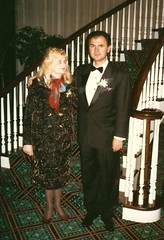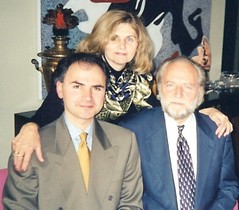Category Archives: Culture
Paul Celan (1920-1970) – Aspen Tree
Aspen Tree, your leaves glance white into the dark.
My mother’s hair was never white.
Dandelion, so green is the Ukraine.
My yellow-haired mother did not come home.
Rain cloud, above the well do you hover?
My quiet mother weeps for everyone.
Round star, you wind the golden loop.
My mother’s heart was ripped by lead.
Oaken door, who lifted you off your hinges?
My gentle mother cannot return.
Paul Celan (1920-1970) – Flower
The stone.
The stone in the air, which I followed.
Your eye, as blind as the stone.
We were
hands,
we baled the darkness empty, we found
the word that ascended summer:
flower.
Flower – a blind man’s word.
Your eye and mine:
they see
to water.
Growth.
Heart wall upon heart wall
adds petals to it.
One more word like this word, and the hammers
will swing over open ground.
Paul Celan (1920-1970) – Ice, Eden
There is a Land that’s Lost,
Moon waxes in its Reeds,
and all that’s turned to frost
with us, burns there and sees.
It sees, for it has Eyes,
Earths they are, and bright.
Night, Night, Alkalis.
It sees, this Child of Sight.
It sees, it sees, we see,
I see you, you too see.
Ice will rise again before
This Hour shall cease to be.
William Shakespeare (1564-1616) – Sonnet CXXX
My mistress’ eyes are nothing like the sun;
Coral is far more red than her lips’ red;
If snow be white, why then her breasts are dun;
If hairs be wires, black wires grow on her head.
I have seen roses damasked, red and white,
But no such roses see I in her cheeks;
And in some perfumes is there more delight
Than in the breath that from my mistress reeks.
I love to hear her speak, yet well I know
That music hath a far more pleasing sound;
I grant I never saw a goddess go;
My mistress when she walks treads on the ground.
And yet, by heaven, I think my love as rare
As any she belied with false compare.
William Shakespeare (1564-1616) – Sonnet I
From fairest creatures we desire increase,
That thereby beauty’s rose might never die,
But as the riper should by time decease,
His tender heir might bear his memory:
But thou, contracted to thine own bright eyes,
Feed’st thy light’st flame with self-substantial fuel,
Making a famine where abundance lies,
Thyself thy foe, to thy sweet self too cruel.
Thou that art now the world’s fresh ornament
And only herald to the gaudy spring,
Within thine own bud buriest thy content
And, tender churl, makest waste in niggarding.
Pity the world, or else this glutton be,
To eat the world’s due, by the grave and thee.
William Shakespeare (1564-1616) – Sonnet LIV
O, how much more doth beauty beauteous seem
By that sweet ornament which truth doth give!
The rose looks fair, but fairer we it deem
For that sweet odour which doth in it live.
The canker-blooms have full as deep a dye
As the perfumed tincture of the roses,
Hang on such thorns and play as wantonly
When summer’s breath their masked buds discloses:
But, for their virtue only is their show,
They live unwoo’d and unrespected fade,
Die to themselves. Sweet roses do not so;
Of their sweet deaths are sweetest odours made:
And so of you, beauteous and lovely youth,
When that shall fade, my verse distills your truth.
William Shakespeare (1564-1616) – Dirge
COME away, come away, death,
And in sad cypres let me be laid;
Fly away, fly away, breath;
I am slain by a fair cruel maid.
My shroud of white, stuck all with yew,
O prepare it!
My part of death, no one so true
Did share it.
Not a flower, not a flower sweet,
On my black coffin let there be strown;
Not a friend, not a friend greet
My poor corse, where my bones shall be thrown:
A thousand thousand sighs to save,
Lay me, O, where
Sad true lover never find my grave
To weep there!
William Shakespeare (1564-1616) – Carpe Diem
O mistress mine, where are you roaming?
O stay and hear! your true-love’s coming
That can sing both high and low;
Trip no further, pretty sweeting,
Journey’s end in lovers’ meeting–
Every wise man’s son doth know.
What is love? ’tis not hereafter;
Present mirth hath present laughter;
What’s to come is still unsure:
In delay there lies no plenty,–
Then come kiss me, Sweet and twenty,
Youth’s a stuff will not endure.






